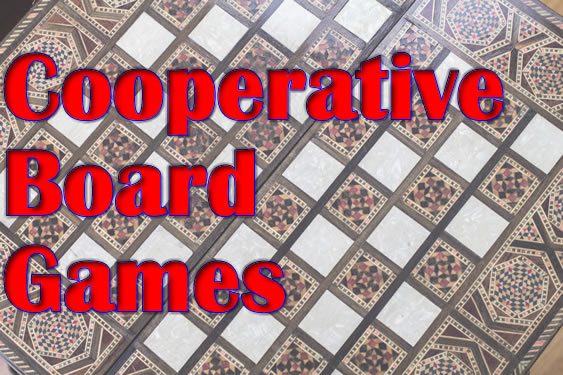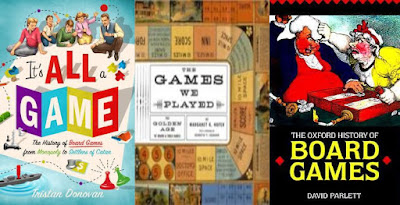There's No I in Team: Introducing the Cooperative Board Game
Some forms of entertainment have the staying power to adapt their format and continue to be enjoyed from one generation to the next. We no longer have to travel to the concert hall to hear Beethoven. Today we simply open our Freegal app and choose the piece we wish to hear. Even trips to the movie theater have been replaced with trips to the local Redbox, or with Netflix and hoopla. And although the flicker of candlelight was once our only option to read late into the evening, these nights the backlit screen of our Kindle illuminates our text.
Just like music, film, and literature, there is another form of entertainment that has stood the test of time—the board game!
Whether you are sitting around a table, placing wooden, lettered squares down to spell out words or using an app on your phone to play a similar word game against friends possibly time zones away, the excitement of playing board games has not diminished in the thousands of years they have existed. Ask anyone what their preferred board game is and you will hear a variety of titles and game types. Monopoly, chess, Chutes and Ladders, checkers, Risk, Candyland. The list goes on and on, ensuring that every player has a game they can call their favorite.
One thing that almost all of these games have in common, despite their genre, level of complexity or target audience, is that they revolve around competition between players. One player wins and the others lose.
But in the 1980s, the cooperative board game emerged, one that involved players working together and against the game. By drawing cards from a deck, rolling dice, or using other game mechanics that produce random results, players will either win or lose together. Co-op board games do not lack in challenge or excitement for their players, instead they simply redirect the usual sense of competition for those partaking in the game.
Like other board games, the list of co-op board games is vast and covers a variety of situations like fighting zombies, surviving in space, searching for treasure in forbidding tombs and working as members of the abolitionist movement. Here are some co-op board games that are held in high regard and easy to jump into.
Pandemic (2-4 players, 8 years+)
Players fill unique roles (such as medic, scientist, researcher, and quarantine specialist) and work together to stop the deadly diseases that threaten the world. As you work to collect samples and create a cure, diseases spread across the world map game board.
Forbidden Island (2-4 players, 8 years+)
A team of players work together in a race to rescue four sacred treasures from a sinking island. After the players’ turn the island takes a turn, flooding certain tiles in hopes to stop the team’s escape.
Flashpoint (1-6 players, 10 years+)
Players are attempting to rescue seven of ten victims from a raging building fire, all while the fire spreads to other parts of the building, causing structural damage and possibly blocking off pathways through the building.
Ghost Stories (1-4 players, 12 years+)
Each player represents a Taoist monk working together with others to fight off waves of ghosts and, finally, the incarnation of Wu-Feng, a boss who arrives at the end of the game.
Betrayal at the House on the Hill (3-6 players, 12 years+)
Players explore a haunted mansion of their own design, encountering spirits and frightening omens that foretell their fate. Unlike other co-op games, one player eventually becomes a defector working against the remaining team members.
Are you bored with your current selection of games and want to try something new? Perhaps you and your friends are tired of fighting over who gets to be the thimble or accusing the banker of stealing money. Or maybe you want to try a new program at your library that involves working together and problem solving, but is fun at the same time. Go and give a co-op board game a try and have fun.
If you are interested in learning the rules to these games, variations on how they can be played, or about other co-op games you can try, check out BoardGameGeek, a database of user submitted information for all types of table top and board games. Additionally, entering the title of a board game in YouTube will usually result in reviews, overviews of rules and mechanics, and even playthroughs of the game.
And if you need a break from exploring and enjoying the exciting world of co-op games and want to learn more about the broader realm of board games, check out the following titles from your local branch:
It's All a Game: The History of Board Games from Monopoly to Settlers of Catan by Tristan Donovan
The Games We Played: The Golden Age of Board & Table Games by Margaret K. Hofer
The Oxford History of Board Games by David Sidney Parlett
—Chris Yaple, Twin Rivers Branch


A favorite of ours is Mysterium, where everyone is trying to figure out who killed the ghost using psychic visions. It features varying degrees of difficulty for the players and replayability is high. Playing the ghost is always the hardest!
ReplyDelete